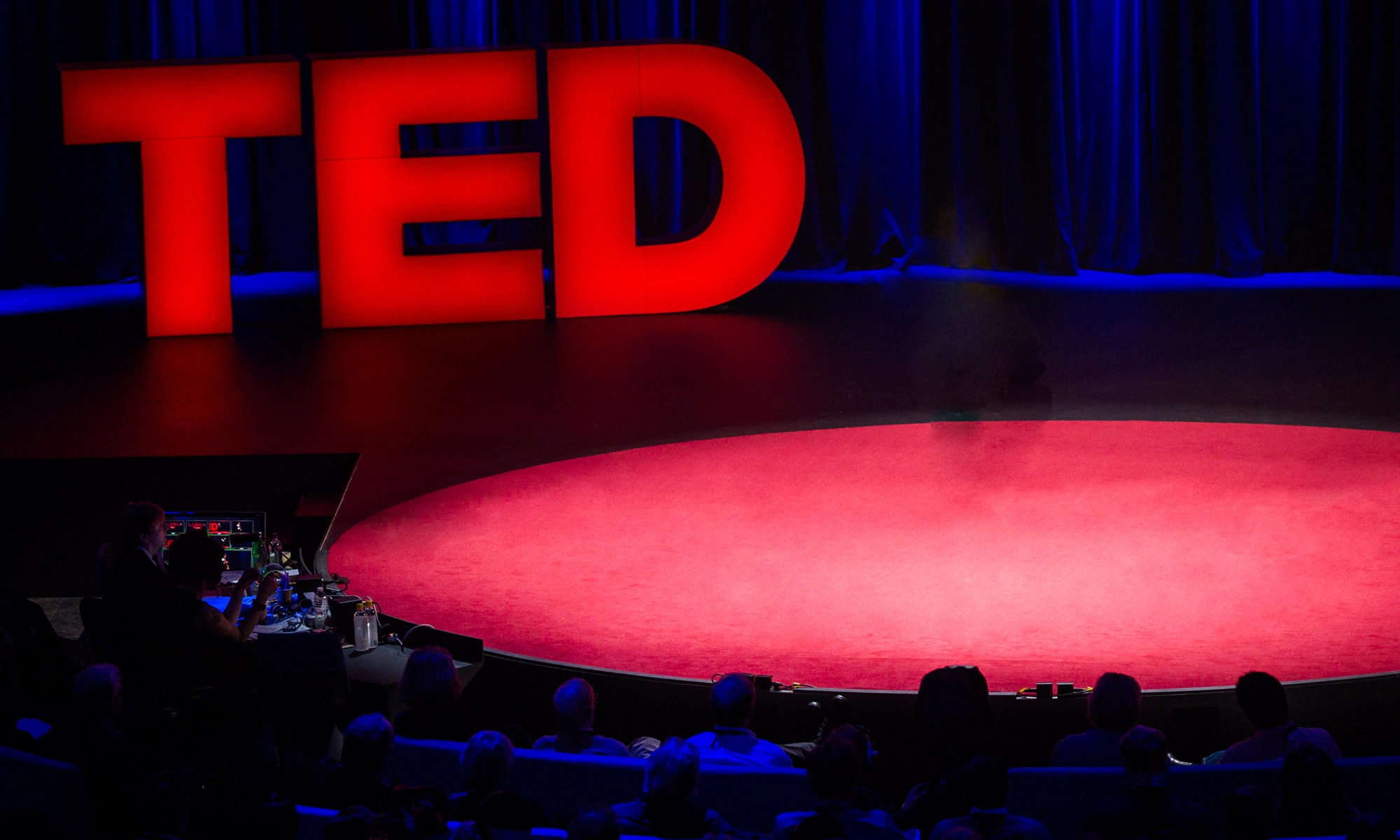
TED Talks have emerged as a cornerstone of modern intellectual discourse, captivating audiences worldwide with their potent blend of information, inspiration, and innovation. In a digital landscape inundated with fleeting content, TED Talks offer a beacon of intellectual stimulation. They serve as catalysts for profound personal and societal change. In this article, we embark on a journey through 11 inspirational TED Talks that possess the transformative power to challenge and reshape our perspectives.
Curated from the vast TED library, these inspirational TED talks traverse diverse subjects. Each presentation is a testament to the power of ideas to transcend boundaries, ignite curiosity, and spark meaningful dialogue.
As we delve into these inspirational TED Talks, we invite readers to open their minds to new possibilities and embrace the enriching experience of intellectual exploration. These inspirational TED Talks promise to leave a lasting impression.
Through the lens of visionary speakers, we will emerge with a renewed sense of purpose and understanding. From the comfort of our screens, we embark on a virtual odyssey, traversing the frontiers of human knowledge and imagination.
Join us as we embark on this enlightening journey, where each of these inspirational TED Talks serves as a beacon guiding us toward greater enlightenment, empathy, and empowerment. Together, let us discover the transformative potential of ideas and embrace the power to change our world.
1. Living Beyond Limits – Amy Purdy
In her captivating TED Talk titled “Living Beyond Limits,” Amy Purdy, a Paralympic snowboarder and co-founder of Adaptive Action Sports, shares her extraordinary journey of resilience and triumph over adversity. Purdy’s story is a testament to the indomitable human spirit. She recounts her experience of losing both her legs due to bacterial meningitis and how she transformed her life through sheer determination and unwavering positivity.
Through her riveting narrative, Purdy challenges conventional notions of disability. She urges audiences to embrace their limitations as opportunities for growth and innovation. She emphasizes the importance of cultivating a mindset of adaptability and seizing every moment with courage and grace.
Purdy’s inspirational journey serves as a powerful reminder that true fulfillment arises not from the resilience and resourcefulness with which we confront them. Her talk inspires audiences to redefine their perceived limitations and embrace the boundless potential that lies within each of us.
2. Your Elusive Creative Genius – Elizabeth Gilbert
In “Your Elusive Creative Genius,” Elizabeth Gilbert, the bestselling author of “Eat, Pray, Love,” delves into the enigmatic nature of creativity and the pressures faced by artists to sustain their creative output. Gilbert challenges the conventional notion that creative genius resides solely within the individual. She instead proposes that creativity is a collaborative effort between the artist and a mystical external force.
Drawing from historical and cultural examples, Gilbert shares insights into the ancient concept of “genius” and its evolution over time. She encourages artists to release the burden of self-doubt and embrace the liberating idea that creativity flows through them, rather than from them.
Gilbert’s thought-provoking talk offers a refreshing perspective on the creative process. She invites artists to cultivate a sense of curiosity, courage, and receptivity in their pursuit of inspiration. By relinquishing the need for perfection and embracing the inherent magic of creativity, Gilbert suggests that artists can unlock their true potential and unleash their creative genius.
3. The Surprising Science of Happiness – Dan Gilbert
In “The Surprising Science of Happiness,” psychologist Dan Gilbert explores the complex nature of human happiness and the misconceptions that often surround it. He reveals that our understanding of what makes us happy is often flawed and subjective.
Gilbert challenges the notion that significant life events, such as winning the lottery or experiencing a devastating loss, have a lasting impact on our happiness. Instead, he suggests that humans possess a remarkable capacity for “synthetic happiness,” the ability to create happiness even in the absence of external circumstances.
By debunking common myths about happiness, Gilbert empowers audiences to take control of their emotional well-being and cultivate a more fulfilling life. His enlightening talk offers practical insights into the science of happiness, He encourages individuals to embrace the power of perspective and resilience in their pursuit of true happiness.
4. Love Letters to Strangers – Hannah Brencher
In her heartwarming TED Talk, “Love Letters to Strangers,” Hannah Brencher shares her personal journey of combating loneliness and spreading love through handwritten letters. Feeling disconnected in a bustling city, Brencher began writing letters of encouragement and leaving them in public places for strangers to find.
Through her touching anecdotes, Brencher highlights the profound impact of simple acts of kindness and human connection. She emphasizes the power of vulnerability and authenticity in fostering meaningful relationships, both with others and with oneself.
Brencher’s initiative, More Love Letters, has since evolved into a global movement. It inspires thousands to reach out to those in need of a reminder that they are seen, valued, and loved. Her talk serves as a poignant reminder of the transformative power of compassion and the effect of small gestures of love.
5. The Puzzle of Motivation – Dan Pink
In “The Puzzle of Motivation,” bestselling author Dan Pink challenges traditional notions of what drives human behavior and performance in the workplace. Drawing on research from psychology and economics, Pink argues that traditional carrot-and-stick approaches to motivation are fundamentally flawed and often hinder creativity and productivity.
Pink introduces the concept of intrinsic motivation. He asserts that individuals are driven by a deep-seated desire for autonomy, mastery, and purpose. He presents compelling evidence that intrinsic motivators are far more effective in fostering innovation and satisfaction than external rewards or punishments.
By reimagining the way organizations approach motivation, Pink offers a blueprint for creating workplaces that inspire creativity, engagement, and fulfillment. His thought-provoking talk prompts audiences to rethink their assumptions about motivation and consider how aligning work with intrinsic values can lead to greater personal and professional fulfillment.
6. The Power of Introverts – Susan Cain
In “The Power of Introverts,” Susan Cain, author of the bestselling book “Quiet: The Power of Introverts in a World That Can’t Stop Talking,” challenges the societal bias favoring extroversion and celebrates the unique strengths of introverted individuals. Drawing from her own experiences as an introvert and extensive research in psychology, Cain explores the valuable contributions introverts make to creativity, innovation, and leadership.
Cain highlights the importance of creating environments that honor and accommodate introverted traits, such as deep reflection and focused work. She dispels common myths surrounding introversion and encourages introverts to embrace their natural tendencies rather than conform to extroverted norms.
Cain advocates for a more balanced and inclusive approach to harnessing the diverse talents of introverts and extroverts alike. Her message resonates with introverts worldwide, affirming their worth and potential in a society that often undervalues their unique strengths.
7. Your Body Language May Shape Who You Are – Amy Cuddy
In her captivating TED Talk, “Your Body Language May Shape Who You Are,” social psychologist Amy Cuddy explores the profound impact of body language on our self-perception and behavior. Drawing from her research on power posing, Cuddy reveals how adopting expansive, confident postures can not only influence how others perceive us but also alter our own thoughts and emotions.
Cuddy’s insightful findings shed light on the interconnected relationship between body and mind, suggesting that small changes in body language can lead to significant shifts in confidence and performance. By demonstrating the power of nonverbal communication in shaping our identity and experiences, Cuddy empowers audiences to harness the potential of body language to cultivate greater confidence and presence in various aspects of life. Her compelling talk serves as a reminder of the transformative power of body language in shaping who we are and how we navigate the world.
8. The Danger Of A Single Story – Chimamanda Ngozi Adichie
In her thought-provoking TED Talk, “The Danger Of A Single Story,” acclaimed author Chimamanda Ngozi Adichie eloquently explores the harmful consequences of reducing individuals and cultures to simplistic, one-dimensional narratives. Drawing from her own experiences as a Nigerian woman and storyteller, Adichie shares poignant anecdotes that illustrate how a singular perspective can lead to stereotypes, misunderstandings, and injustice.
Adichie emphasizes the importance of embracing diverse narratives and recognizing the complexity of human experiences. She challenges audiences to question the stories they consume. To seek out multiple perspectives in order to gain a more nuanced understanding of the world.
Adichie inspires listeners to resist the temptation to rely on single stories. Instead engage with the rich tapestry of voices that comprise our global community. Her powerful message serves as a reminder of the transformative potential of storytelling in fostering empathy, understanding, and connection.
9. Listening To Shame – Brené Brown
In “Listening To Shame,” renowned researcher and storyteller Brené Brown delves into the powerful emotion of shame and its profound impact on our lives. Brown draws from her extensive research on vulnerability and shame resilience. She explores how shame operates as a silent force that undermines our sense of worthiness and connection.
Brown emphasizes the importance of acknowledging and addressing shame with empathy and courage. Rather than allowing it to fester in secrecy and isolation. Through candid anecdotes and insightful reflections, she illustrates how shame thrives on silence. How embracing vulnerability can lead to greater authenticity and resilience.
By encouraging audiences to cultivate empathy for themselves and others, Brown offers a path toward healing and connection. Sh reminds us that by listening to our shame and sharing our stories, we can break free from its grip. We can cultivate a more compassionate and authentic way of living.
10. All It Takes Is 10 Mindful Minutes – Andy Puddicombe
In “All It Takes Is 10 Mindful Minutes,” mindfulness expert Andy Puddicombe shares his simple yet profound approach to finding peace and clarity in our busy lives. Puddicombe is a Buddhist monk and co-founder of the meditation app Headspace. He emphasizes the transformative power of mindfulness in cultivating mental well-being and resilience.
Puddicombe invites audiences to take just 10 minutes out of their day to practice mindfulness. He encourages them to observe their thoughts and sensations without judgment. Through engaging anecdotes and practical exercises, he demystifies meditation. He demonstrates how even brief moments of mindfulness can lead to profound shifts in perspective and attitude.
Puddicombe suggests that we can cultivate a greater sense of calm, focus, and presence in our lives. He gently reminds us that all it takes is a few mindful minutes to reconnect with ourselves.
11. Do Schools Kill Creativity? – Sir Ken Robinson
In his iconic TED Talk, “Do Schools Kill Creativity?,” Sir Ken Robinson challenges the traditional education system’s approach to nurturing creativity and innovation. Robinson argues that schools often prioritize academic conformity over the cultivation of diverse talents and creative potential.
Robinson contends that the current educational paradigm stifles creativity. He advocates for a more holistic approach to education that encourages exploration, experimentation, and individual expression.
Through compelling and humorous anecdotes, Robinson highlights the importance of fostering creativity as a fundamental skill. His thought-provoking talk ignites a global conversation about the role of education.
Conclusion
As we conclude our exploration of these 11 inspirational TED Talks, we are reminded of the profound impact of ideas. They shape our perspectives, igniting our passions, and propelling us towards personal growth and societal change. DASEach talk has offered invaluable insights and perspectives that have the potential to change our lives.
Throughout these inspirational TED talks, we have witnessed the resilience and determination of inspiring individuals. For example, Amy Purdy, who defied the odds to pursue their dreams. Also Hannah Brencher, who spread love and kindness through handwritten letters. We have learned from leaders like Susan Cain and Brené Brown. Both spoke about the importance of embracing our authentic selves and cultivating empathy and vulnerability in our relationships.
We have been inspired by the revolutionary ideas of Dan Pink and Sir Ken Robinson. They challenge us to rethink conventional wisdom and reimagine our approach to motivation and education. Additionally, we explored the complexities of human emotions with experts like Amy Cuddy and Dan Gilbert. They shed light on the power of body language and the science of happiness.
Chimamanda Ngozi Adichie and Andy Puddicombe urged us to expand our perspectives and cultivate compassion in our daily lives. Each of these inspirational TED Talks has left an indelible mark on our hearts and minds. They invite us to reflect on our values, beliefs, and aspirations.
Thank you for joining us on this enlightening and inspiring journey. Here’s to the power of ideas and the limitless potential of the human spirit.
What did you think of our list of inspirational TED Talks? Let us know in the comment section below.
Check out our 11 Inspirational Quotes to Motivate You.







